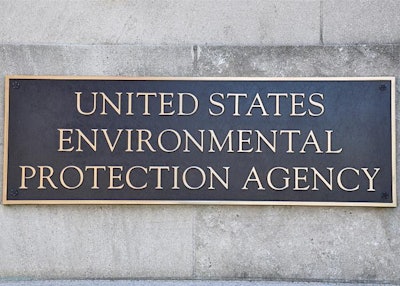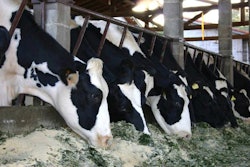
Some agriculture groups are supportive of President-elect Donald Trump’s pick to lead the Environmental Protection Agency (EPA), while others are voicing their concerns.
Trump has selected Oklahoma Attorney General Scott Pruitt, a critic of the EPA, a skeptic of climate change, and an opponent of the Renewable Fuel Standard.
The American Farm Bureau Federation (AFBF) says that, as Oklahoma attorney general, Pruitt has “stood up for common-sense, effective regulation that protects the environment and the rights of the regulated community.”
Trump’s selection of Pruitt “is welcome news to America’s farmers and ranchers — in fact, to all who are threatened by EPA’s regulatory overreach — and should help provide a new degree of fairness for U.S. agriculture,” AFBF President Zippy Duvall said in a statement.
Pruitt has fought the EPA’s Waters of the United States rule, and AFBF says Pruitt “will pay attention to the concerns of farmers and ranchers and others who work with the nation’s natural resources on a daily basis.”
Renewable Fuel Standard opponent
But Democratic U.S. Senator and ranking member of the U.S. Senate Committee on Agriculture, Nutrition and Forestry, Debbie Stabenow, said she is “deeply concerned” by Trump’s choice to lead the EPA.
“Mr. Pruitt has been a leading proponent of dismantling the landmark Renewable Fuel Standard (RFS). We were promised a farmer-friendly EPA by President-elect Trump, yet his pick for the agency wants to upend one of the most successful economic drivers in rural America,” Stabenow said in a statement.
As attorney general of one of the largest oil-, natural gas- and grain-producing states, Pruitt has stood up against the RFS, an EPA-run program that requires transportation fuel sold in the United States to contain a minimum volume of renewable fuels. The RFS originated with the Energy Policy Act of 2005 and was expanded and extended by the Energy Independence and Security Act of 2007.
The RFS has boosted demand for corn and soybeans in the U.S., as well as the rural economy. The oil industry has rallied against the RFS, and Pruitt has called the program “unworkable.” Pruitt has also challenged EPA regulations on carbon emissions and water pollution.
However, Trump has said he supports the RFS, calling it “an important tool in the mission to achieve energy independence for the U.S.," adding, "I will do everything in my power as president to achieve that goal."
A changing EPA?
Trump, during the presidential campaign, called the EPA a “disgrace” and said he would “get rid of it in almost every form.”
In a statement announcing Pruitt as his pick, Trump said: “For too long, the Environmental Protection Agency has spent taxpayer dollars on an out-of-control anti-energy agenda that has destroyed millions of jobs, while also undermining our incredible farmers and many other businesses and industries at every turn. As my EPA Administrator, Scott Pruitt … will reverse this trend and restore the EPA’s essential mission of keeping our air and our water clean and safe. My administration strongly believes in environmental protection, and Scott Pruitt will be a powerful advocate for that mission while promoting jobs, safety and opportunity.”
President Obama’s Agriculture Secretary Tom Vilsack told Bloomberg in November that he feels the RFS will remain intact under the Trump administration because it “supports too many jobs and too much rural infrastructure is set up for it. The Renewable Fuel Standard is solid.”
When asked by WATTAgNet, the National Corn Growers Association and the American Feed Industry Association had no comment on Trump’s nominee to run the EPA. The National Grain and Feed Association did not respond to a request for comment.

















